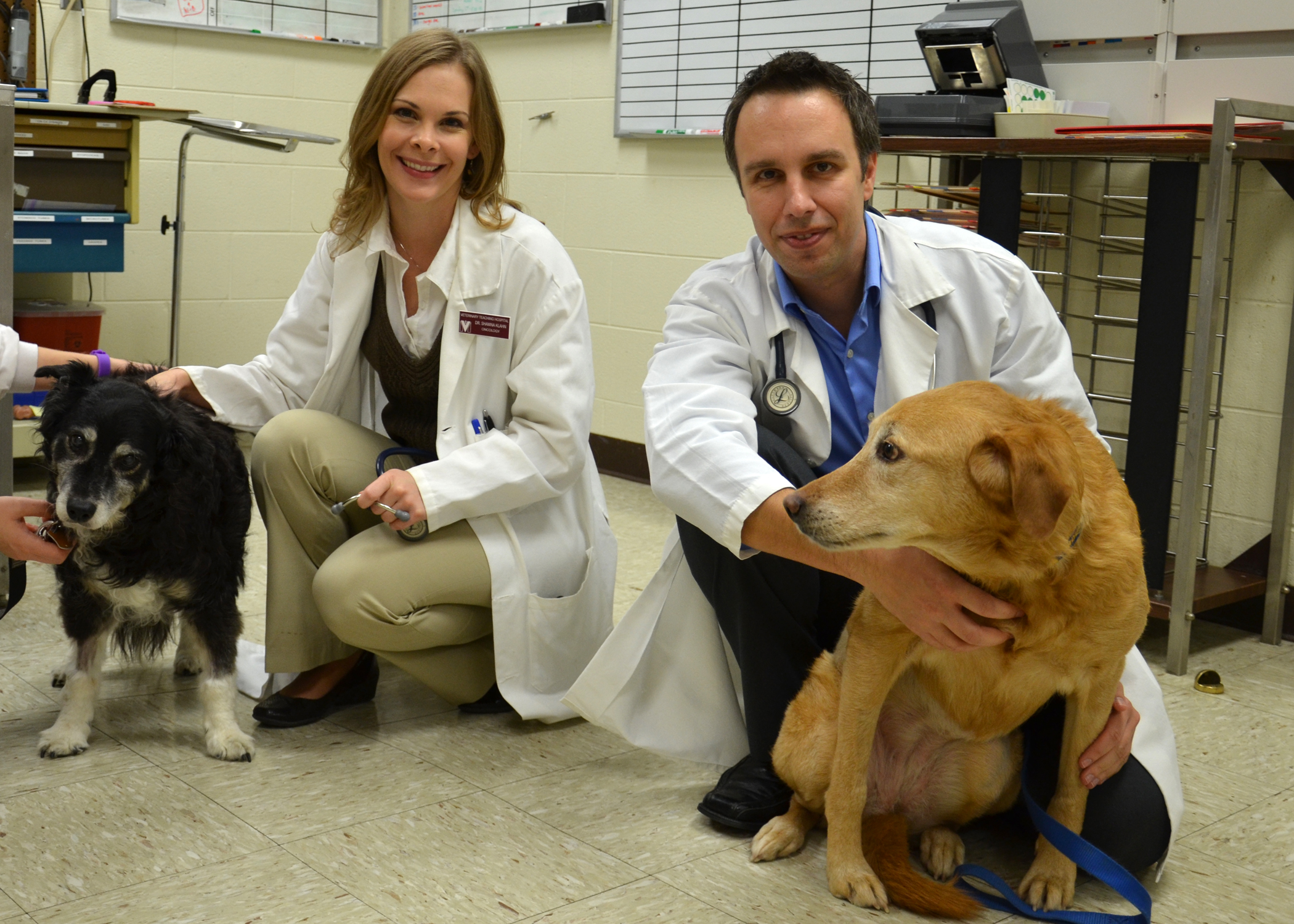Veterinary college launches oncology program with arrival of two new faculty members

The fight against animal cancer has received a powerful boost at the Virginia-Maryland Regional College of Veterinary Medicine with the launch of a new oncology program.
Under way at the college’s flagship facility at Virginia Tech, the program provides a full range of care for four-legged patients with and without a cancer diagnosis, including biopsy, imaging, treatment, and surgery.
The inaugural oncology program was launched this fall with the arrival of two new assistant professors. Dr. Nick Dervisis and Dr. Shawna Klahn, who both gained medical oncology experience from Michigan State University, will oversee the program in the college’s Department of Small Animal Clinical Services. The two are also offering phone and written consultations with referring veterinarians.
“This is the first time that we have had faculty dedicated to medical oncology services,” said Dr. Greg Daniel, head of the Department of Small Animal Clinical Sciences. “With their arrival, Dr. Dervisis and Dr. Klahn have not only greatly enhanced the quality of care that we offer patients at the Veterinary Teaching Hospital, but also prepared the way for new research endeavors in the fight against cancer.”
Both Dervisis and Klahn said they hope to build a strong investigative research program linked to the oncology program. Likely areas of research include genomics, pharmacogenetics, cell signaling biology, and new therapy techniques.
Dervisis comes to the veterinary college from the Department of Small Animal Clinical Sciences at Michigan State University, where he held positions as assistant professor, researcher, and medical oncology resident. Prior to that, he was a research assistant at the Department of Veterinary Clinical Medicine at the University of Illinois at Urbana-Champaign. Dervisis earned a Doctor of Veterinary Medicine degree from the School of Veterinary Medicine at Aristotle’s University in Thessaloniki, Greece, and a doctorate in comparative medicine and integrative biology at Michigan State University.
Prior to joining the veterinary college, Klahn was a veterinary medical oncology clinician at Upstate Veterinary Specialists in Greenville, S.C. She was previously a medical oncology resident at Michigan State University and a small animal medicine and surgery intern at Colorado State University’s Veterinary Teaching Hospital in Fort Collins, Colo. She earned a bachelor’s degree in zoology and a Doctor of Veterinary Medicine degree from the University of Wisconsin-Madison School of Veterinary Medicine.
Both Dervisis and Klahn are board certified in oncology from the American College of Veterinary Internal Medicine.
This article was written by Michael Sutphin.







